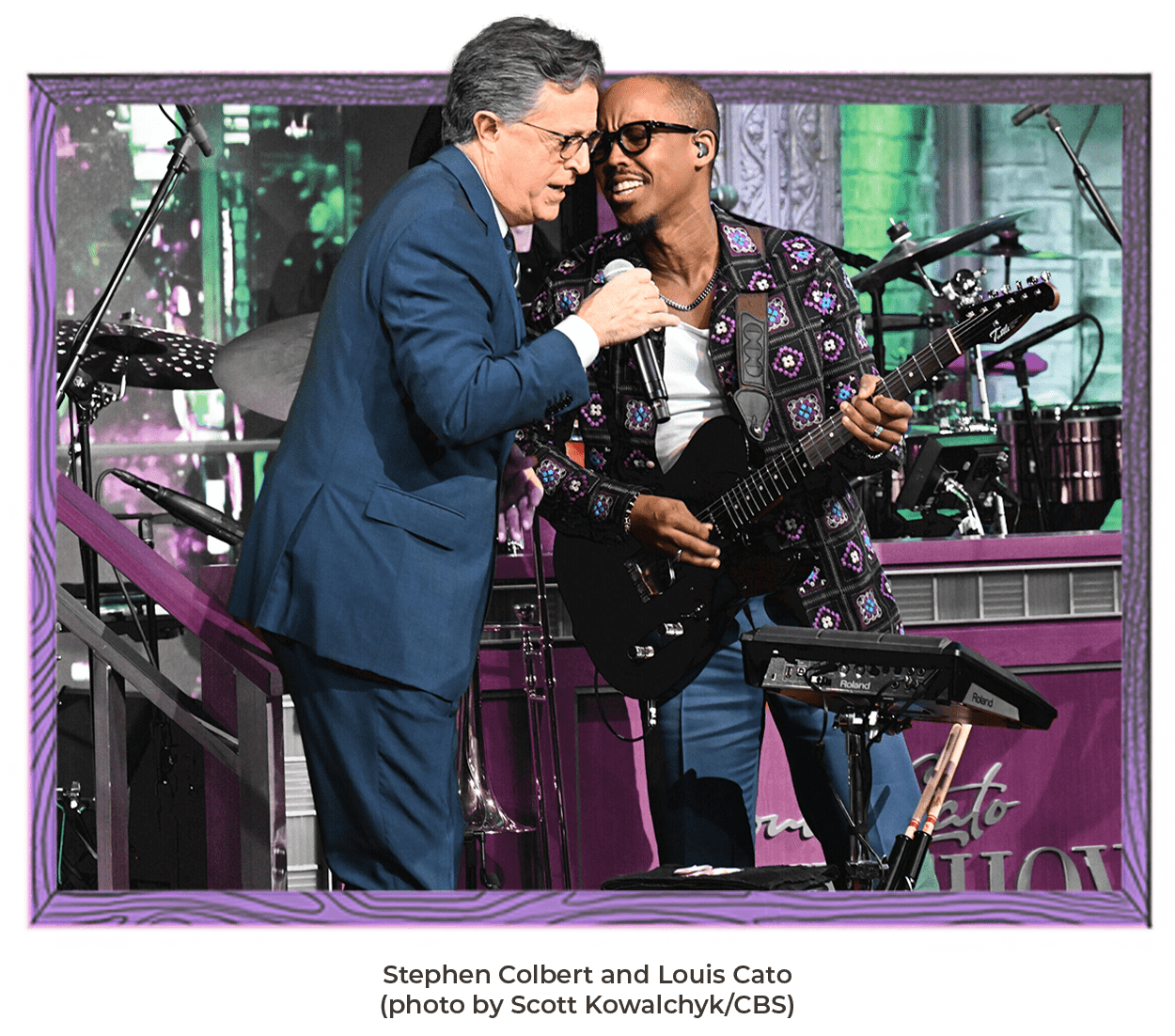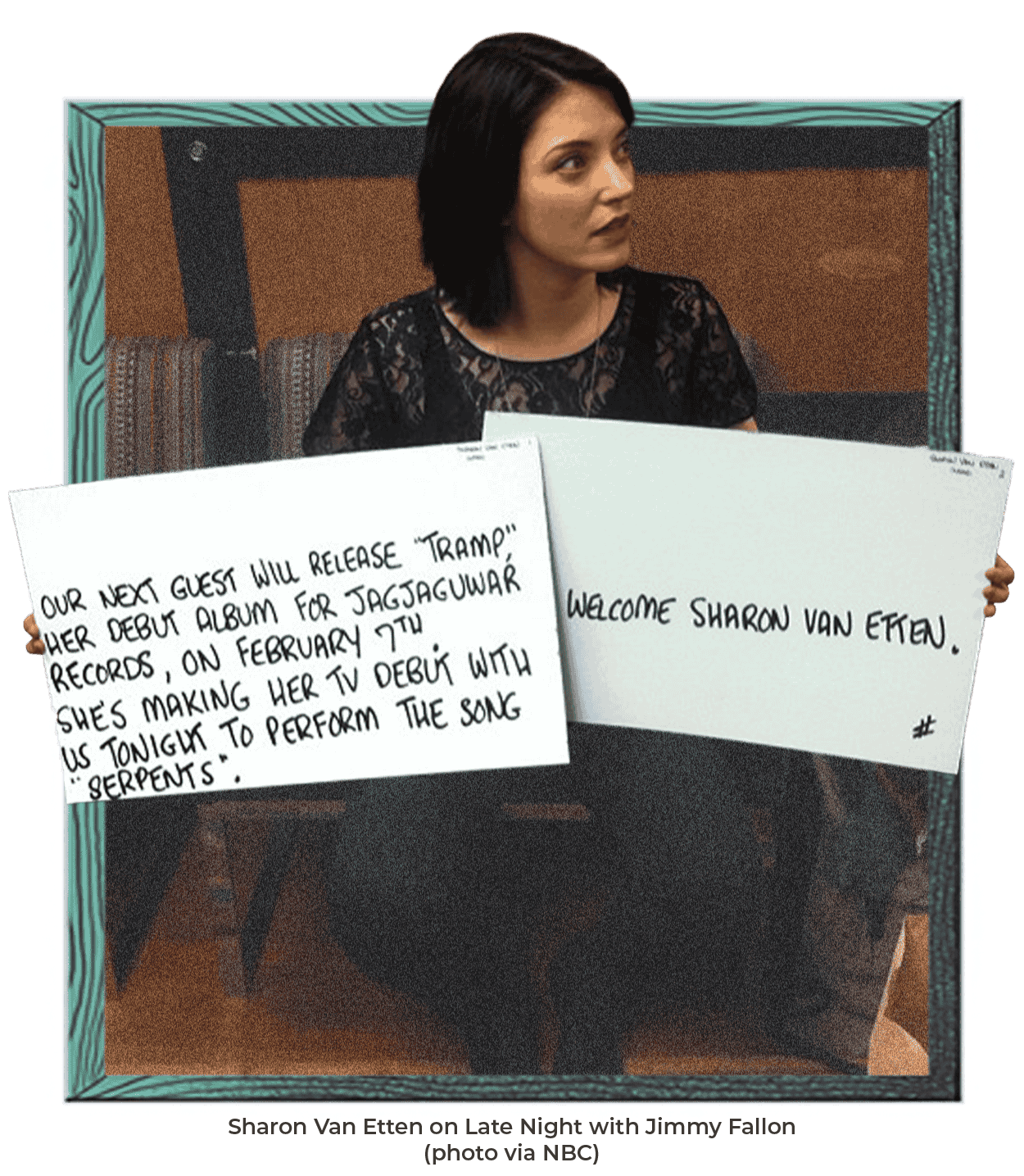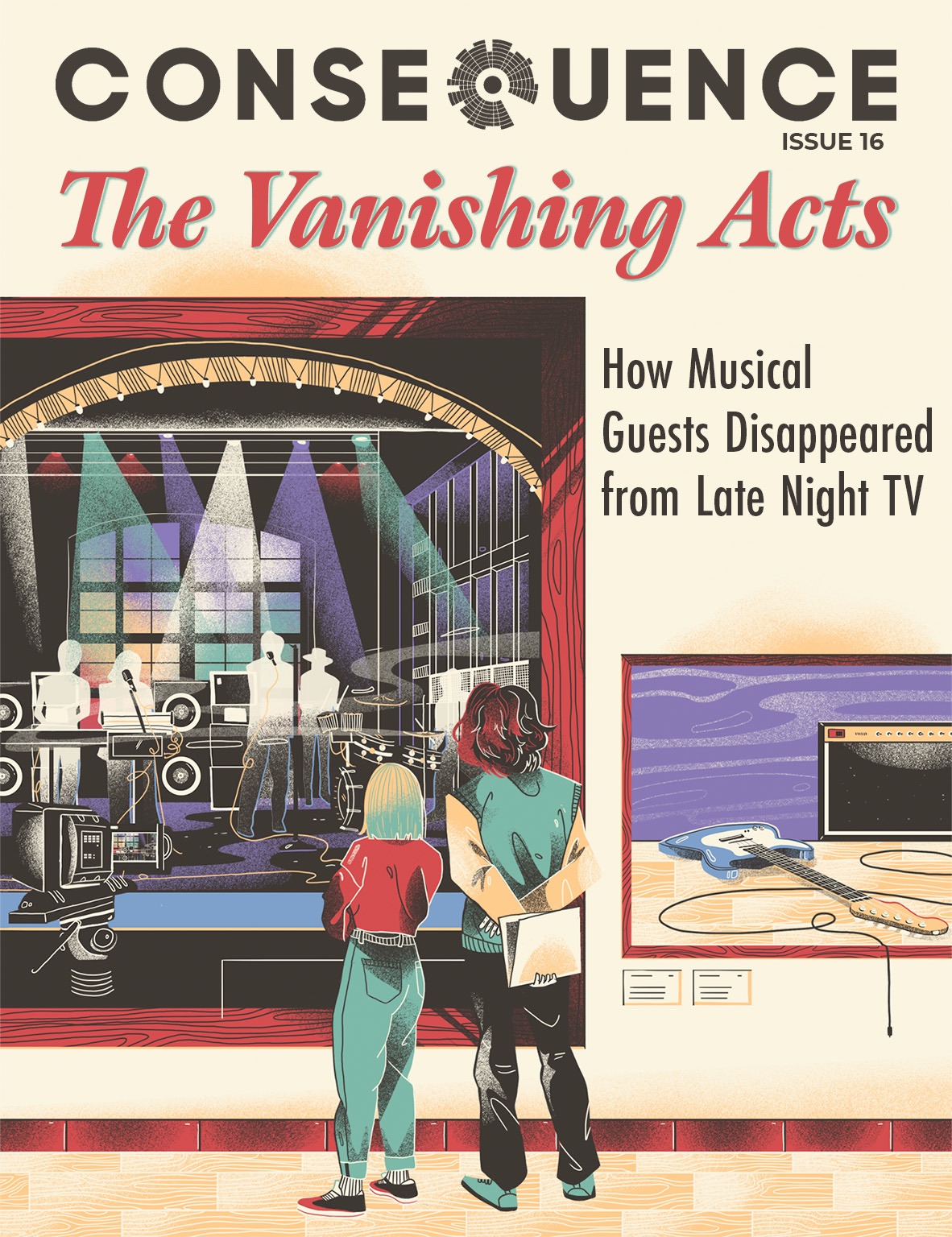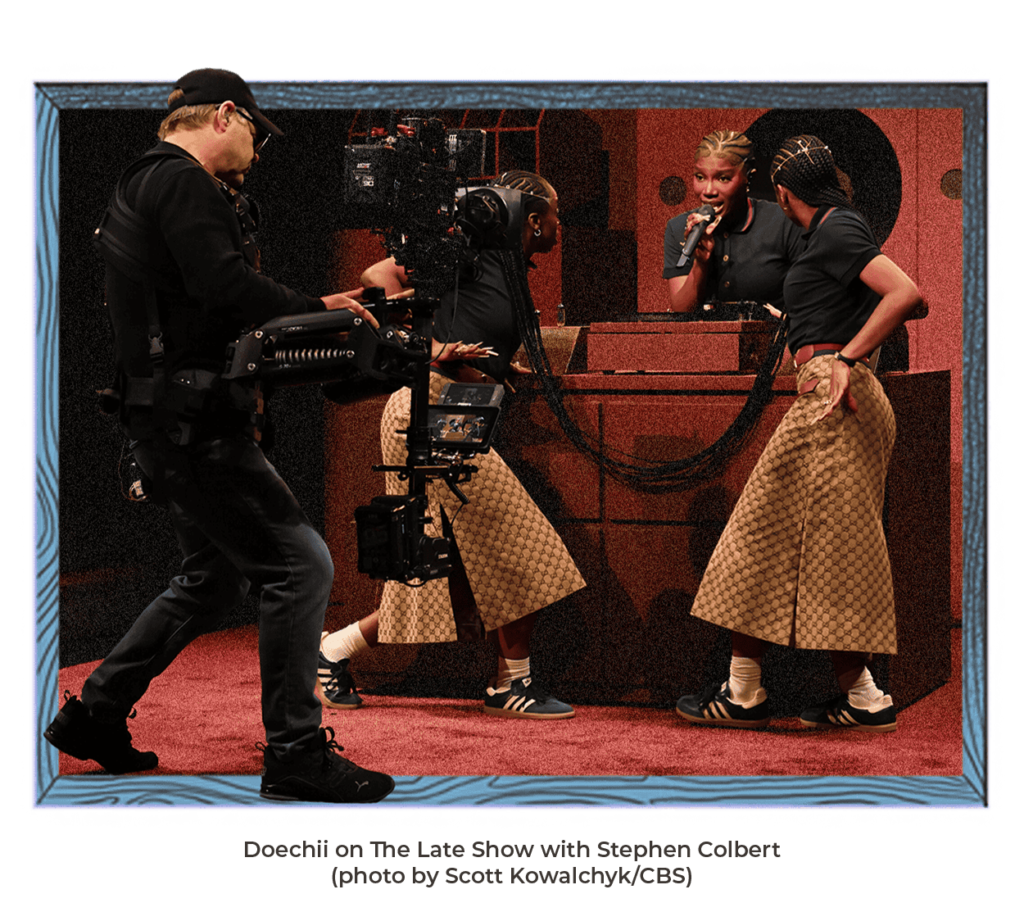Arguably, no band understands the potential impact late night once held better than Future Islands, who became stars literally overnight after a breakout performance on Late Night with David Letterman in 2014. “The record came out a few weeks later, and then after Letterman, almost all of the festivals that had initially turned us down, we got a ton of offers coming back,” the band’s William Cashion tells Consequence. “It was like, ‘Sorry, we made a mistake, we want to book you now.’ That was the hugest shift: People that didn’t want us all of a sudden wanted us.”
“People still bring that performance up,” frontman Samuel T. Herring confirms. “So many people discovered our music that way.”
Indie rock staple Sharon Van Etten had a similar experience following her first-ever television appearance on Fallon in 2012. “I was so nervous, to say the least,” she shares. “The show provides an opportunity to reach a broader, and dare I say, a more mainstream audience. It’s the kind of thing my siblings, parents, neighbors, and friends get very excited about.”
But outside of a few late night slots, musical performances are plummeting. Even when they were still on-air, shows hosted by James Corden or Craig Ferguson weren’t yielding as many musical acts as programs like Fallon or Kimmel, but at least they welcomed visiting artists. Corden’s slot is seemingly gone for good, and Ferguson’s is currently filled by Taylor Tomlinson, whose game show-style After Midnight doesn’t feature traditional musical sets. Soon, Tomlinson’s program will end its run, too, with no word on a replacement.
For author and music studies scholar Alyxandra Vesey, the decline can be attributed to changes in how we consume media. “People don’t watch late night broadcast network television regularly anymore, especially young people, who will most likely watch and share live moments after the fact on social media,” she notes. “For example, Doechii’s recent performance on Colbert got a lot of online traction. Her performance had eye-catching production design that helped it go viral. It also kind of looked like a music video, or a ‘big moment’ performance on Saturday Night Live, the Grammys, or the VMAs (back when a ‘VMA moment’ meant something).”
Vesey believes that artists can still create opportunities themselves, primarily by embracing creative production choices, rather than trusting that late night programs have intrinsic power of their own. “Some of the current crop of pop stars — Doechii, Billie Eilish, Lil Nas X, Olivia Rodrigo, Sabrina Carpenter, and Chappell Roan — have found ways to create big breakout moments on late night television,” she explains. “But the conversation usually takes off the morning after and not immediately after it airs. Pop stars used to play for two audiences: the live studio audience and TV viewers. Now they’re playing to hundreds, if not thousands, of fragmented audiences. The late night variety show is a relic of a monoculture long gone.”
Max Weinberg agrees, sharing a conversation he once had with Rick Ludwin, who oversaw The Tonight Show with Jay Leno, Late Night with Conan O’Brien, and Saturday Night Live during his tenure at NBC. “In 1994, I asked him, ‘Why aren’t there any variety shows on television anymore?'” Weinberg recalls. “He said, ‘On Ed Sullivan on CBS, you’d have the tumbling act, the plate-spinning act, an opera singer, and rock bands. Now, there’s a channel for every one of those acts: You have the plate-twirling channel, the animal trick channel, the opera channel. There’s no need for a variety show.'”
To make the argument, Vesey points to what is happening on daytime talk shows. Kelly Clarkson and Jennifer Hudson have drawn healthy ratings with a music-centric format. But they are insular worlds; their fans don’t ask for — and may not want — to see emerging performers. “Clarkson and Hudson don’t have to worry about ‘breaking’ new talent, because their fans want to see them,” Vesey says.

Elsewhere, experiments continue. John Mulaney is putting his own spin on the format with Everybody’s Live, a weekly show he hosts on Netflix. Although it’s a separate entity from the network traditions, the show seems to intentionally channel the old-school variety and talk show formats, welcoming musical guests like Kim Gordon, Kim Deal, and Cypress Hill. Though as with all Netflix projects, it’s probably best to temper your optimism until it gets picked up for Season 3.
And so the audience continues to fragment and a beloved tradition fades. Well so what, you might say, and there’s no easy comeback. Our society has changed so much over the last 15 years — so what if this changes, too? But those who love the art form can all agree that something vital is being lost.
“I don’t think there will ever be any substitute for what we do as late night television musicians,” says Louis Cato, who serves as the band leader for The Late Show with Stephen Colbert. “I think the musical element of American late night television is a deeply important dimension of the experience. The content and delivery of the jokes and the interviews are central, no doubt, but music is often the vehicle that allows that content to be delivered and digested in the realm of the soul.”

“Late night is special because of the live nature of television,” confirms Van Etten. “The artists get to become part of the cast and crew; you’re a member that helps make the show happen. There are so many moving parts, departments, and hurdles to jump through. It all unfolds so quickly; it’s quite literally magic to get to be part of it all for one quick flicker.”
And it does feel like real magic, witnessing an act having their breakthrough moment in real time. (Just ask Future Islands.) It’s all about the potential; a tiny studio, populated by a few hundred guests, could be just the beginning. That performance could be shared a million times over, or capture the hearts of people at home to feed a swelling fanbase. It’s the contrast of an intimate but incredibly high-stakes setting, where musicians have the opportunity to connect with viewers who might otherwise never hear their music.
“Every time we tour, inevitably, we meet somebody who says they found out about us because of that performance,” says Future Islands’ William. “You know, it’s over 10 years later. It was a magic wand moment for us.”
When the red light turns to the stage, there’s still the chance for something magical to happen — and for many artists, it’s a chance worth fighting for.

Content shared from consequence.net.

